Physical Culture Supply Co.
Certified Edith Trice Player Stamp Short Sleeve Tee
Certified Edith Trice Player Stamp Short Sleeve Tee
This relaxed-fit women's tee shirt features early Black women's basketball star Edith Trice of the Younger Set depicted on a stamp that's certified with our Royal Courts of Justice seal, which appears in full on the back. Playing during the 1910s, the Younger Set team was based in Harlem with a roster that featured many of the city’s best female athletes. They became the unofficial sister team of the Smart Set Athletic Club.
• 100% combed and ring-spun cotton
• Heather Prism Natural is 99% combed and ring-spun cotton, 1% polyester
• Other Heather colors are 52% combed and ring-spun cotton, 48% polyester
• Fabric weight: 4.2 oz/y² (142 g/m²)
• Relaxed fit
• Pre-shrunk fabric
• Side-seamed construction
• Crew neck
• Blank product sourced from Nicaragua, Honduras, or the US
NOTE: Please allow up to 7 days for fulfillment prior to shipping. Also, since this is a custom-printed item, we cannot cancel the order once in production nor accept returns or exchanges, so please carefully review your order, including sizing. Thank you.
Black Fives®, Make History Now®, and Younger Set™ are trademarks of the Black Fives Properties, Inc. All rights reserved.
This product is made especially for you as soon as you place an order, which is why delivery takes a bit longer. Making products on demand instead of in bulk helps reduce overproduction, environmental impact, and labor unfairness. Thank you for your thoughtful purchasing decision!
Size guide
| SHIRT WIDTH (inches) | SHIRT LENGTH (inches) | US SIZES | EU SIZE | UK SIZE | SLEEVE LENGTH (inches) | |
| S | 18 ½ | 25 ¼ | 6-8 | 36-38 | 10-12 | 7 ¾ |
| M | 20 | 26 | 10-12 | 40-42 | 14-16 | 8 ¼ |
| L | 22 | 26 ¾ | 14-16 | 44-46 | 18-20 | 8 ¾ |
| XL | 24 | 27 ½ | 18-20 | 48-50 | 22-24 | 9 ½ |
| 2XL | 26 | 28 ¼ | 22-24 | 52-54 | 26-28 | 10 ¼ |
| 3XL | 28 | 29 | 26-28 | 56-58 | 30-32 | 10 ¾ |
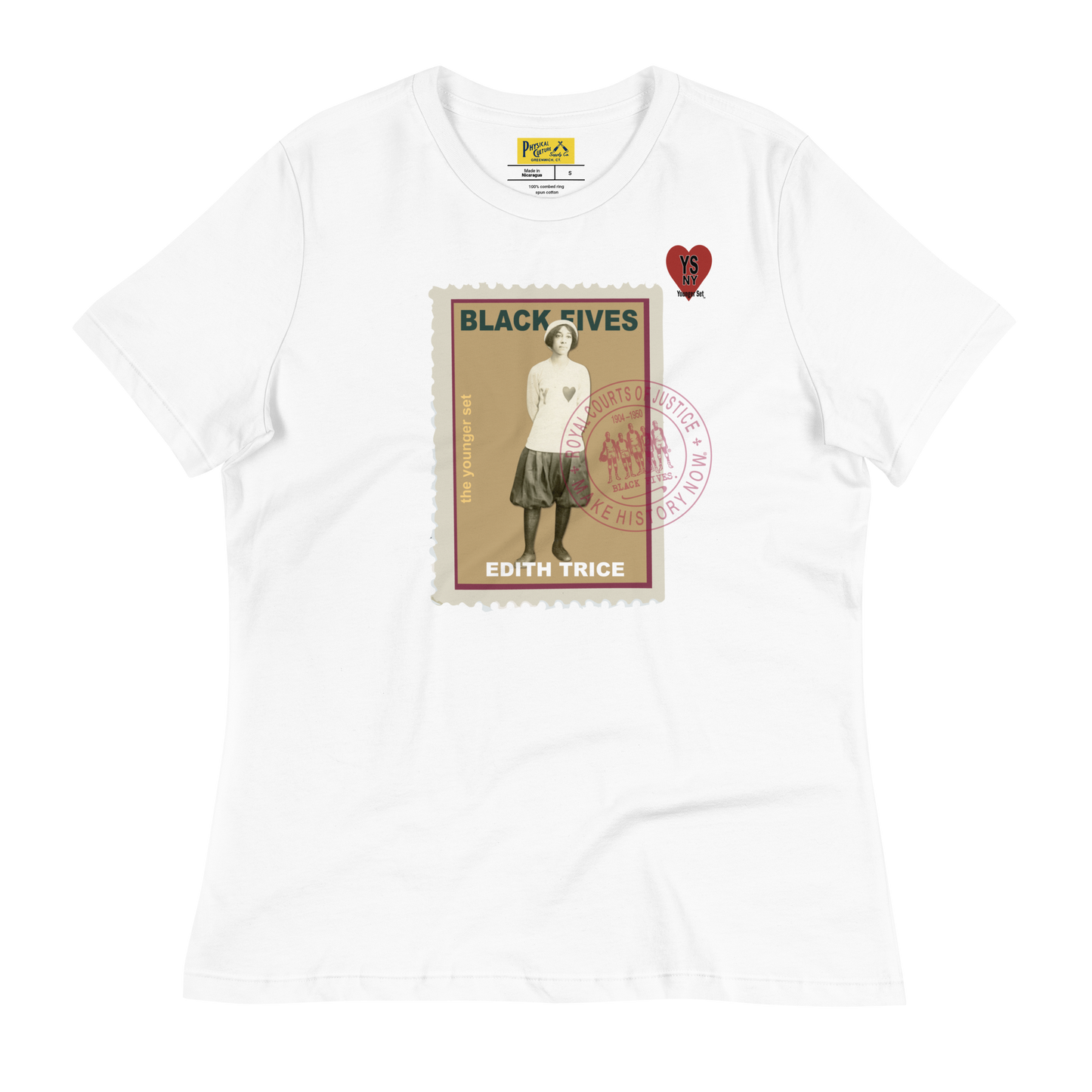
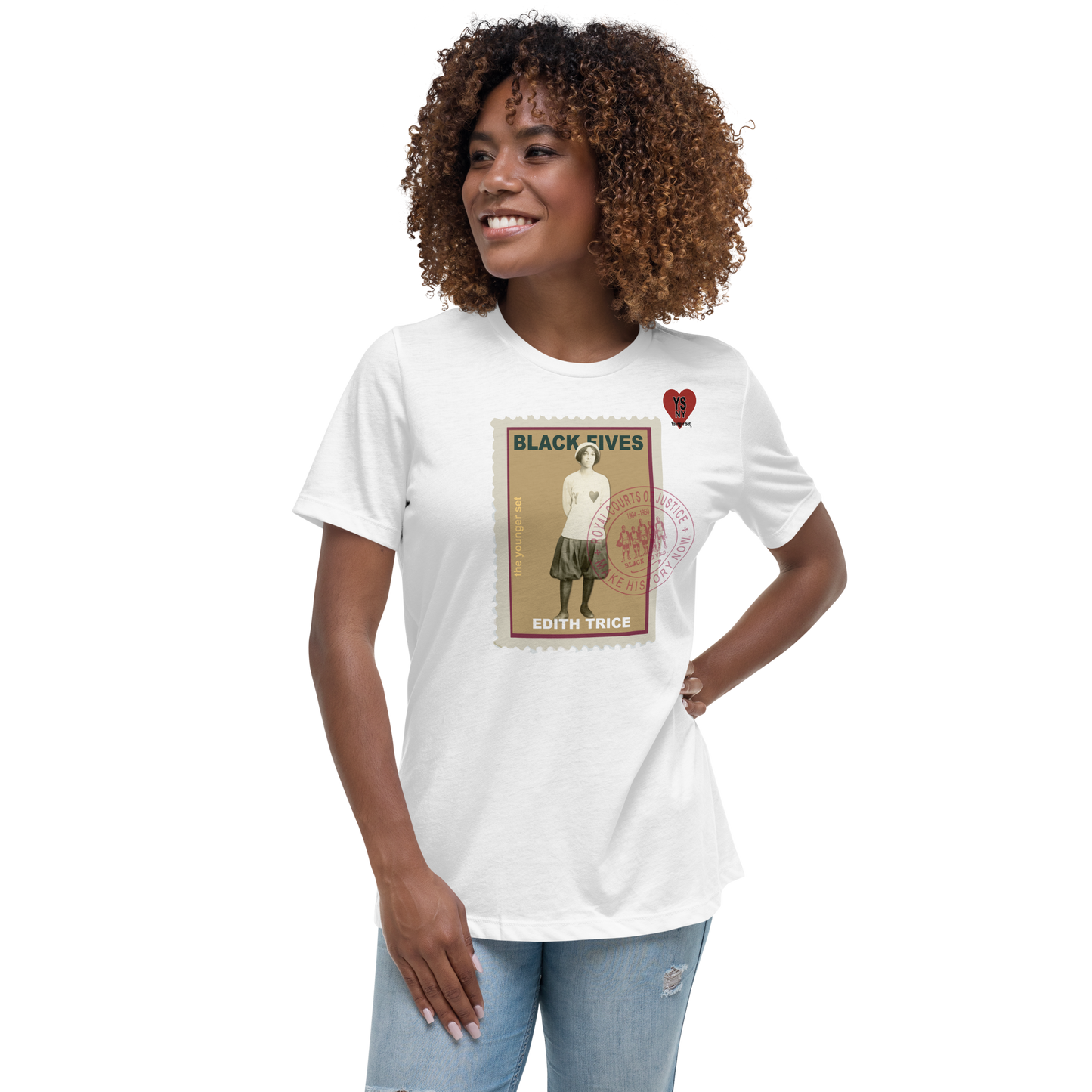
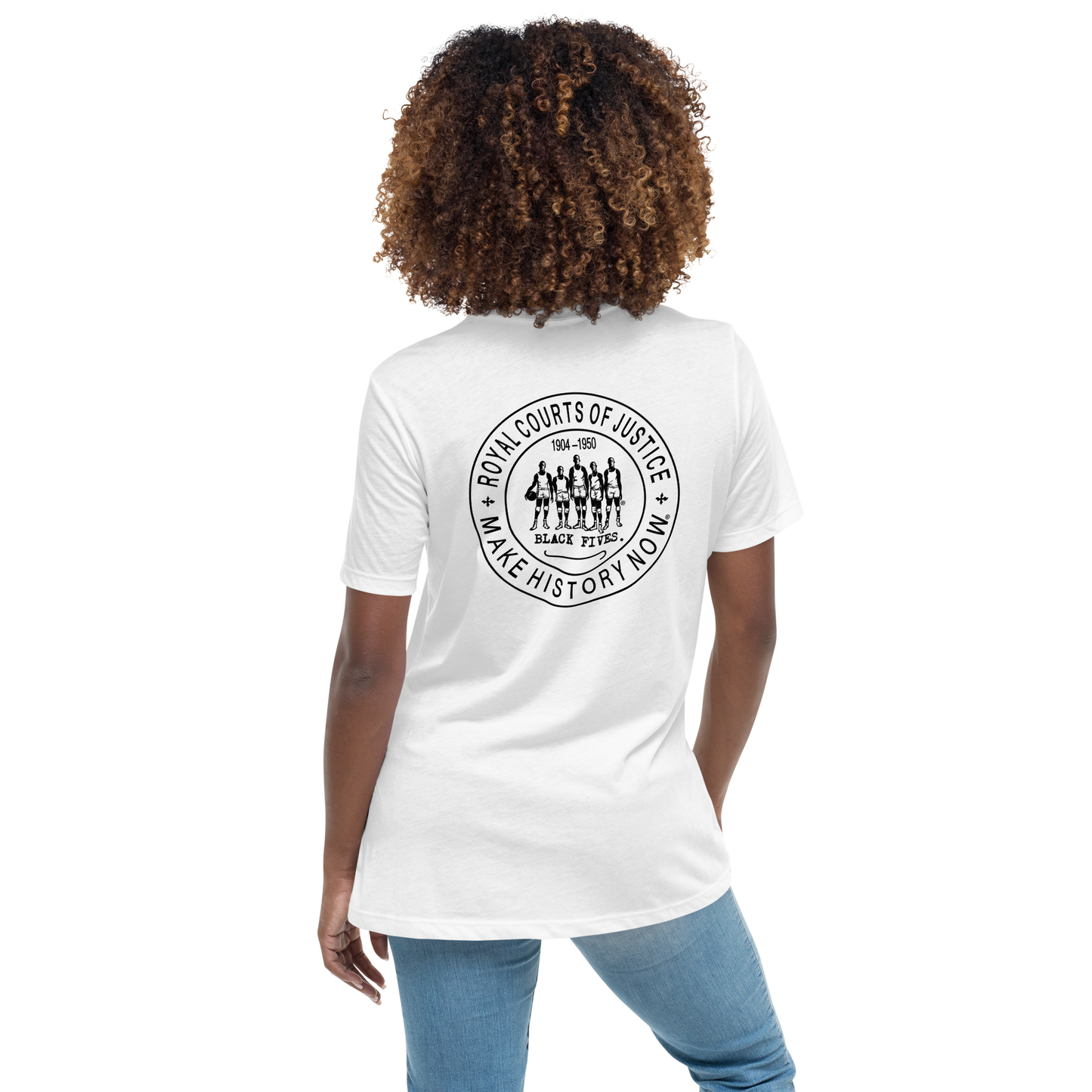
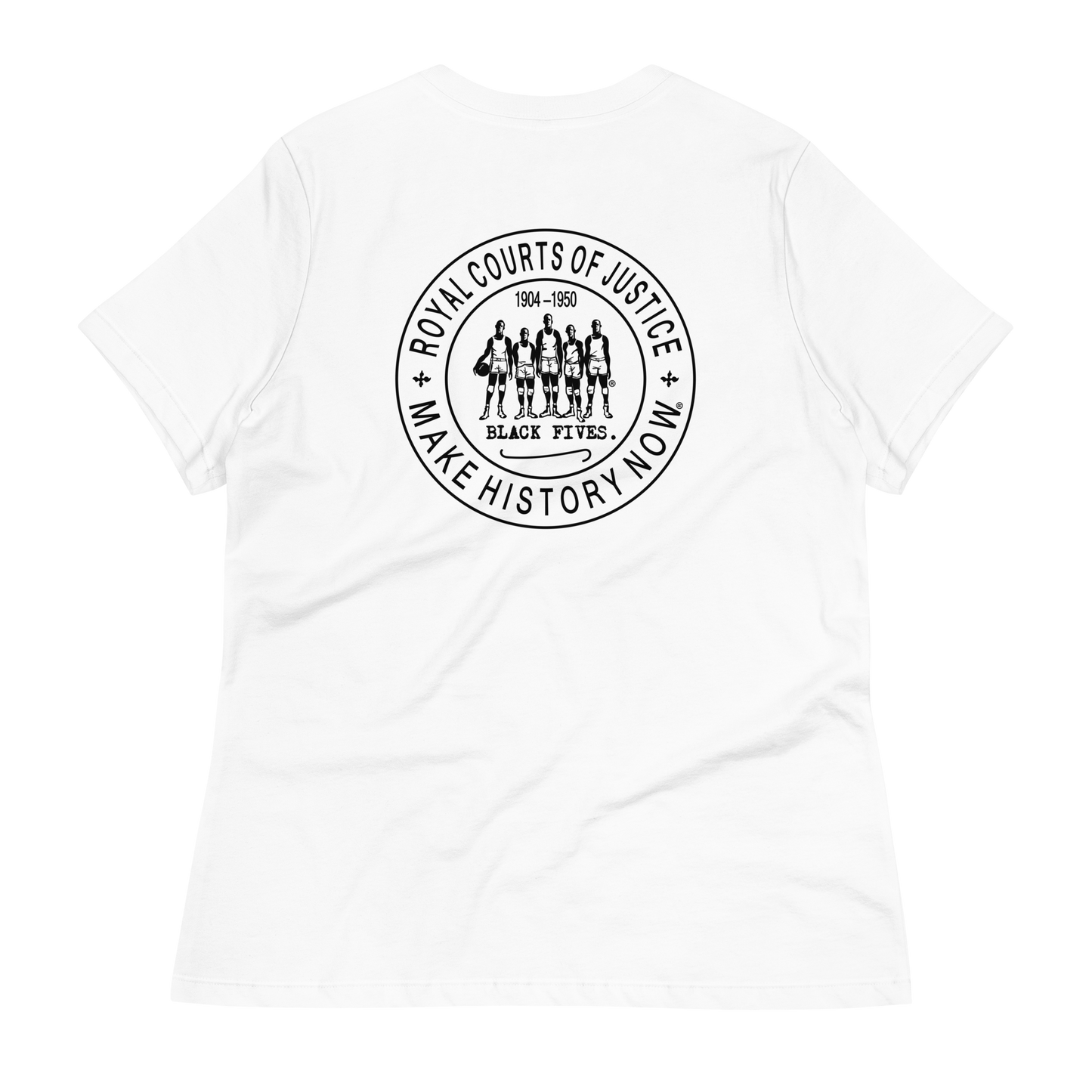
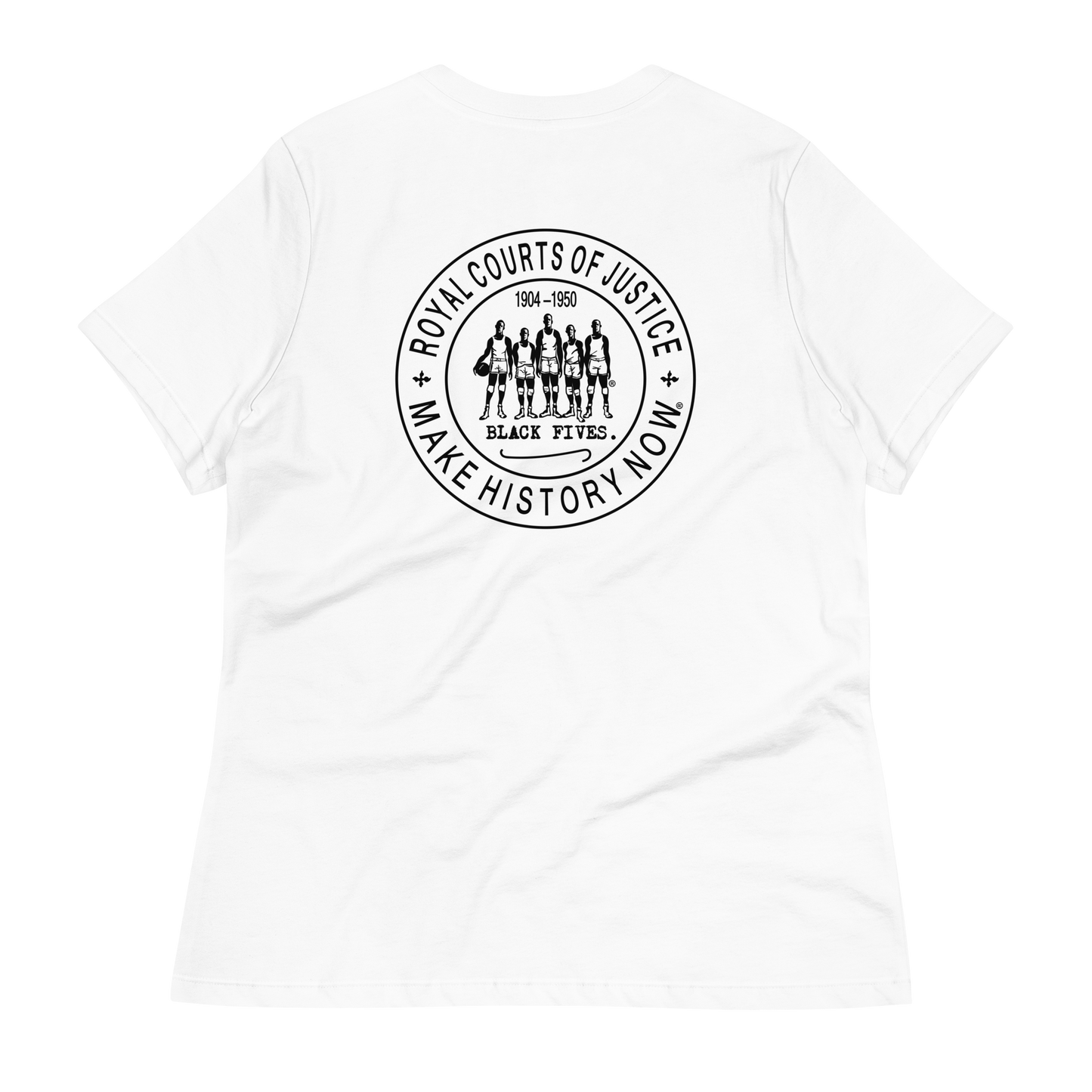
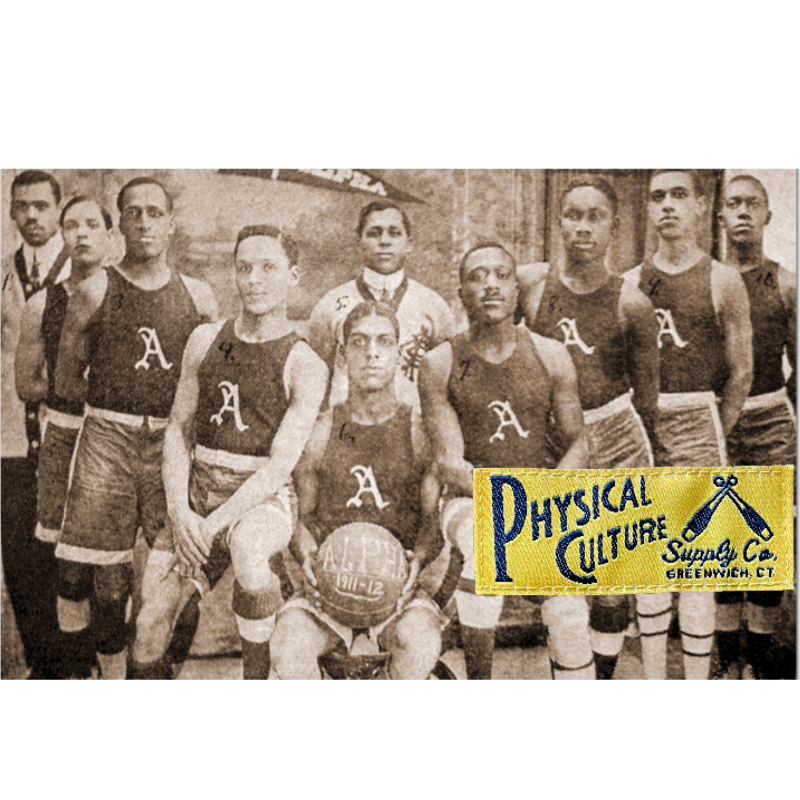
PHYSICAL CULTURE SUPPLY CO.
The official vintage-style private label of the Black Fives Foundation, was inspired by the widespread Physical Culture movement of the early 1900s, during which basketball first became popular among African Americans.





